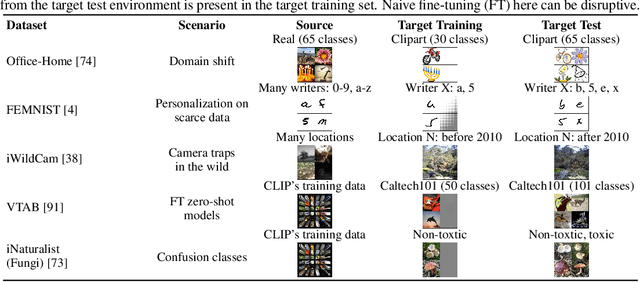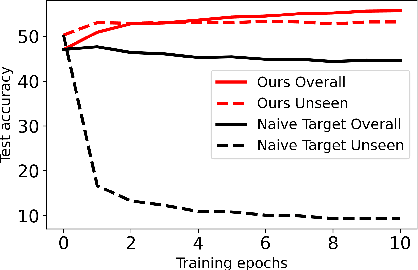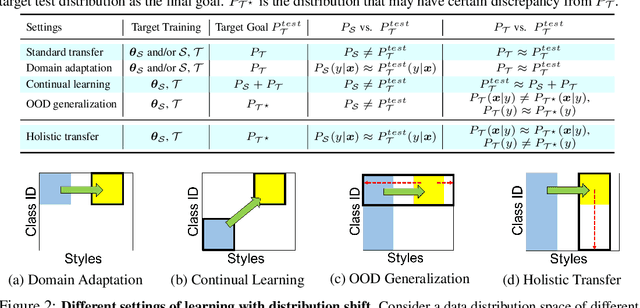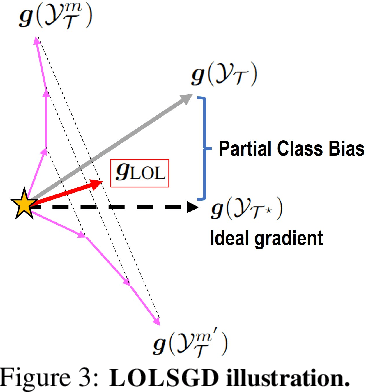Holistic Transfer: Towards Non-Disruptive Fine-Tuning with Partial Target Data
Paper and Code
Nov 02, 2023



We propose a learning problem involving adapting a pre-trained source model to the target domain for classifying all classes that appeared in the source data, using target data that covers only a partial label space. This problem is practical, as it is unrealistic for the target end-users to collect data for all classes prior to adaptation. However, it has received limited attention in the literature. To shed light on this issue, we construct benchmark datasets and conduct extensive experiments to uncover the inherent challenges. We found a dilemma -- on the one hand, adapting to the new target domain is important to claim better performance; on the other hand, we observe that preserving the classification accuracy of classes missing in the target adaptation data is highly challenging, let alone improving them. To tackle this, we identify two key directions: 1) disentangling domain gradients from classification gradients, and 2) preserving class relationships. We present several effective solutions that maintain the accuracy of the missing classes and enhance the overall performance, establishing solid baselines for holistic transfer of pre-trained models with partial target data.
 Add to Chrome
Add to Chrome Add to Firefox
Add to Firefox Add to Edge
Add to Edge